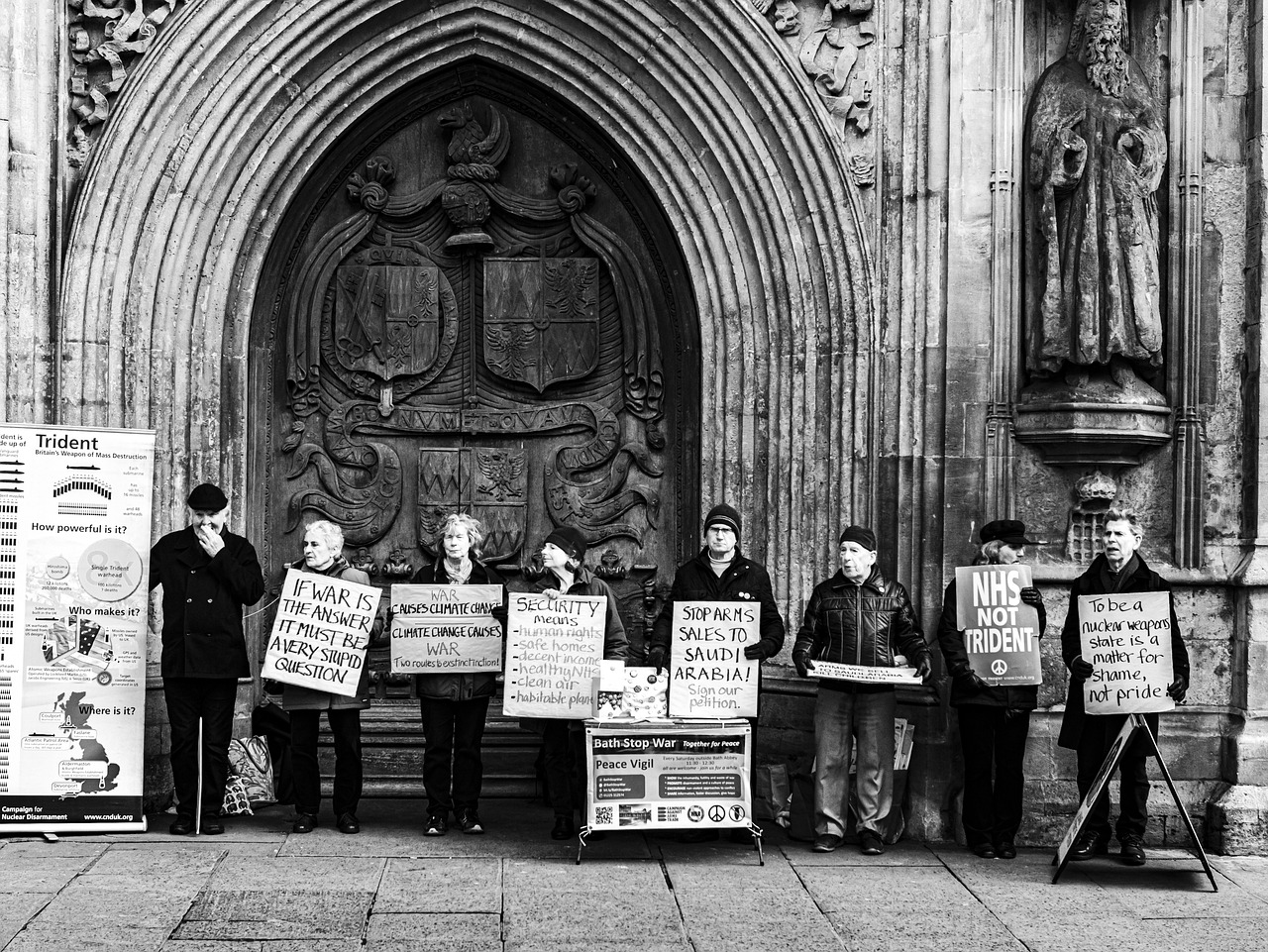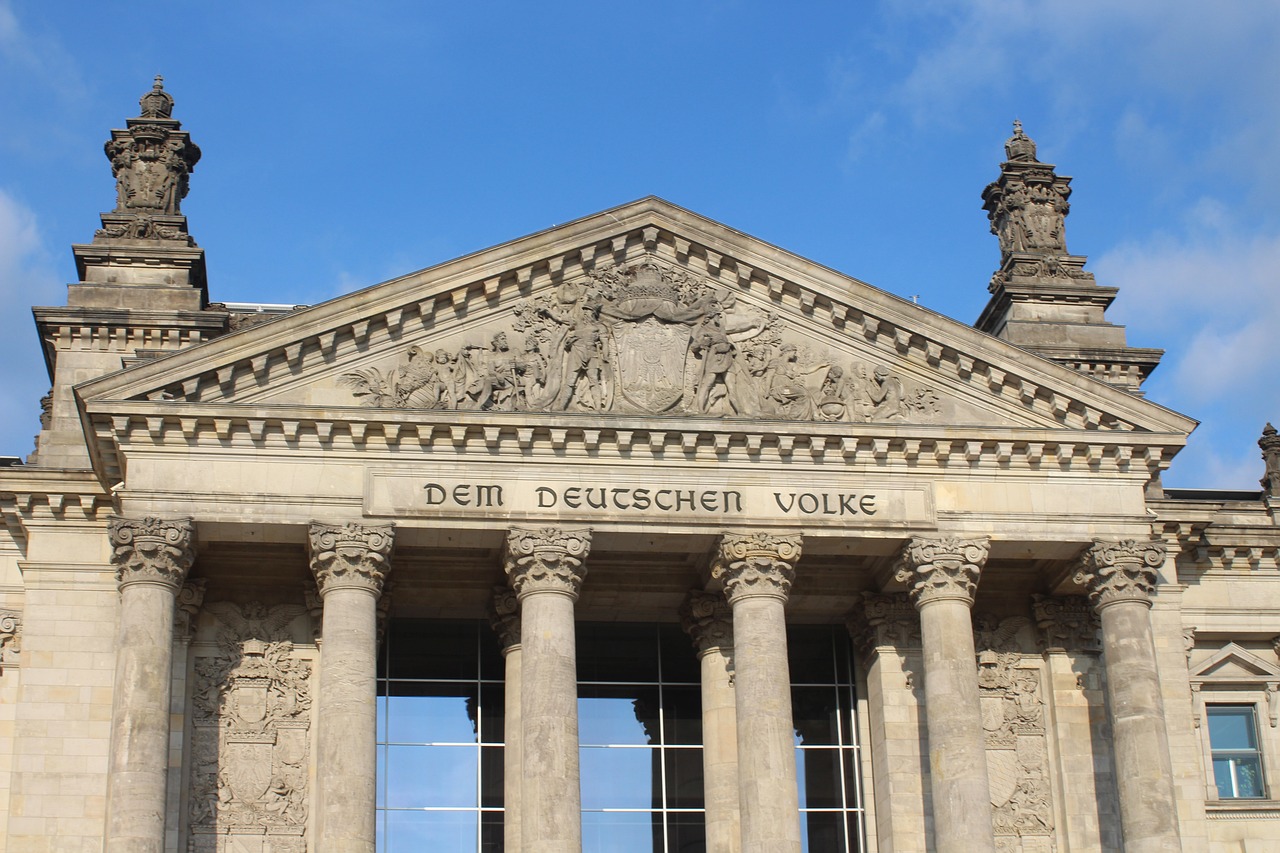Decoding the Philosophy of Political Corruption
Political corruption is a term that often evokes a whirlwind of emotions and opinions. It's a complex beast that lurks in the shadows of governance, twisting the very fabric of society. But what does it truly mean? At its core, political corruption refers to the abuse of power by government officials for illegitimate private gain. This can manifest in various forms, from bribery and embezzlement to nepotism and favoritism. The philosophical implications of such actions are profound, raising questions about morality, ethics, and the very nature of power itself.
To grasp the full scope of political corruption, one must understand that it's not merely a series of isolated incidents; it's a systemic issue that reflects the values and norms of a society. Think of it as a virus that infects the body of governance, weakening its immune system and leading to dysfunction. The moral dilemmas posed by corruption challenge our understanding of right and wrong, prompting us to consider the broader implications of these actions on our communities and institutions.
When we delve into the philosophy of political corruption, we encounter a myriad of perspectives. For instance, some philosophers argue that corruption is an inevitable byproduct of power, suggesting that as individuals ascend the ranks of authority, they become increasingly susceptible to its allure. Others contend that corruption is a moral failing, a deliberate choice made by individuals who prioritize personal gain over the common good. This dichotomy raises essential questions: Is corruption a flaw in human nature, or is it a symptom of a flawed system?
Moreover, the consequences of political corruption ripple through society, affecting everything from public trust to economic stability. When citizens perceive their leaders as corrupt, it breeds disillusionment and apathy, undermining democratic values and civic engagement. In essence, corruption doesn't just impact those in power; it creates a culture of skepticism and disengagement among the populace. This can lead to a vicious cycle where the lack of trust in government fuels further corruption, creating a seemingly inescapable trap.
As we navigate through the philosophical landscape of political corruption, it becomes evident that addressing this issue requires more than just policy changes. It demands a cultural shift, a collective commitment to transparency, accountability, and ethical governance. By fostering an environment where integrity is valued and rewarded, societies can begin to dismantle the structures that allow corruption to thrive.
- What is political corruption? Political corruption refers to the abuse of power by government officials for illegitimate private gain.
- What are the main forms of political corruption? Common forms include bribery, embezzlement, nepotism, and favoritism.
- How does political corruption affect society? It undermines public trust, erodes democratic values, and can lead to economic instability.
- Can political corruption be eradicated? While it may be challenging to eliminate entirely, fostering a culture of transparency and accountability can significantly reduce its prevalence.

The Nature of Political Corruption
Understanding the essence of political corruption is akin to peeling back the layers of an onion; each layer reveals a deeper complexity that challenges our perceptions of morality and governance. At its core, political corruption can be defined as the abuse of power by government officials for illegitimate private gain. This definition, while straightforward, opens the door to a myriad of interpretations and implications. It manifests in various forms, including bribery, nepotism, embezzlement, and fraud, each presenting unique moral dilemmas that society grapples with.
To truly grasp the nature of political corruption, we must first recognize that it is not merely an act of wrongdoing but a systemic issue that permeates the very fabric of society. It thrives in environments where transparency is lacking, accountability is absent, and the rule of law is undermined. In many cases, corruption becomes normalized, leading to a culture where unethical behavior is not only accepted but expected. This phenomenon raises the question: how do we define what is acceptable in governance and what crosses the line into corruption?
Moreover, the implications of political corruption extend beyond the individuals involved; they ripple through society, affecting public trust and the integrity of institutions. When citizens perceive their leaders as corrupt, it breeds disillusionment and apathy towards political engagement. This disconnection can create a vicious cycle, where the absence of public participation further entrenches corrupt practices. To illustrate this point, consider the following examples of how different forms of corruption manifest:
| Type of Corruption | Description | Impact |
|---|---|---|
| Bribery | Offering something of value to influence an official's actions | Undermines fair decision-making and equity |
| Nepotism | Favoring relatives or friends in appointments or contracts | Destroys meritocracy and public confidence |
| Embezzlement | Misappropriation of funds entrusted to an official | Reduces resources available for public services |
| Fraud | Deception to secure unfair or unlawful gain | Erodes trust in institutions and governance |
Each type of corruption not only undermines the effectiveness of governance but also poses significant ethical questions about the responsibilities of leaders and the expectations of citizens. As we navigate this complex landscape, it becomes clear that political corruption is not just a legal issue; it is a moral one that challenges our collective values and the principles of justice.
In conclusion, the nature of political corruption is multifaceted and deeply rooted in societal structures. Understanding its definitions, forms, and the moral dilemmas it presents is essential for fostering a culture of integrity and accountability. As we move forward in our exploration of this topic, it is crucial to remain vigilant and proactive in addressing the challenges posed by corruption, ensuring that our political systems reflect the values we hold dear.
- What is the primary cause of political corruption? Political corruption often arises from a lack of transparency, accountability, and effective governance.
- How can societies combat political corruption? Societies can combat corruption through stronger laws, increased transparency, and fostering a culture of accountability.
- Is political corruption limited to certain countries? No, political corruption can occur in any country, regardless of its political system or economic status.

Historical Perspectives
When we dive into the history of political corruption, it's like peeling back the layers of an onion—each layer revealing the complex interplay of power, ethics, and societal norms. From ancient civilizations to modern democracies, political corruption has been a persistent shadow, shaping the way societies function. Understanding this evolution not only helps us grasp the current state of affairs but also provides a roadmap for potential reforms.
Throughout history, political corruption has manifested in various forms, from bribery and nepotism to outright embezzlement. Each era has its unique flavor of corruption, influenced by cultural, economic, and political contexts. For instance, in ancient Greece, the concept of democracy was often undermined by corruption, as wealthy elites manipulated the system to maintain their power. Fast forward to the Middle Ages, and we see the rise of corruption within the Church, where indulgences were sold, and moral authority was compromised. The Renaissance brought a renewed focus on humanism, yet it also saw the flourishing of corruption in the courts of powerful monarchs.
To illustrate this evolution, let's take a closer look at some key historical milestones:
| Period | Key Events | Impact on Corruption |
|---|---|---|
| Ancient Greece | Manipulation of democratic processes | Corruption undermined the principles of democracy |
| Middle Ages | Sale of indulgences by the Church | Loss of moral authority and public trust |
| Renaissance | Corruption in royal courts | Empowerment of elites and disenfranchisement of the masses |
| Modern Era | Political scandals and corruption investigations | Calls for transparency and accountability in governance |
As we moved into the modern era, the lens through which we view political corruption began to shift. The Industrial Revolution and the rise of capitalism introduced new challenges, as economic interests often collided with political power. Corruption became more sophisticated, involving complex networks of influence and financial gain. This led to significant public outcry and demands for reforms, as citizens began to recognize the detrimental effects of corruption on their lives.
However, it’s not just about the past; understanding these historical perspectives is crucial for addressing contemporary issues. Today, we witness ongoing corruption scandals that echo those of yesteryears. The lessons learned from history remind us that corruption is not merely a political issue but a societal one that affects every aspect of our lives. As we reflect on these historical perspectives, we are compelled to ask ourselves: what can we do to combat corruption in our own time?
In summary, the historical journey through political corruption illuminates the persistent nature of this issue. By examining the past, we can better understand the present and work towards a future where integrity and accountability are at the forefront of governance.
- What are the main forms of political corruption? Political corruption can take many forms, including bribery, nepotism, embezzlement, and abuse of power.
- How has political corruption evolved over time? Political corruption has evolved from simple bribery in ancient times to complex networks of influence and financial gain in modern democracies.
- What impact does political corruption have on society? Political corruption undermines public trust, erodes governmental efficiency, and exacerbates social inequalities.
- How can we combat political corruption? Combating political corruption requires transparency, accountability, and active citizen engagement in governance.

Case Studies in History
When we dive into the murky waters of political corruption, history serves as our guide, revealing patterns and consequences that echo through time. Analyzing specific case studies not only helps us understand the mechanisms of corruption but also illustrates its profound effects on governance and society. Let's take a closer look at a few pivotal examples that have shaped our understanding of this issue.
One of the most notorious instances of political corruption can be traced back to the Roman Empire. As one of the most powerful empires in history, it was not immune to the corrosive effects of corruption. The decline of the Roman Empire is often attributed to a combination of external pressures and internal decay, with corruption playing a crucial role. Bribery, nepotism, and the misuse of public funds became rampant as power-hungry politicians prioritized personal gain over the welfare of the state. This erosion of trust and accountability weakened the very foundations of governance, contributing to the empire's eventual fall.
Fast forward to the modern era, and we see that political corruption remains a pressing issue in contemporary democracies. For instance, the Watergate scandal in the United States during the 1970s serves as a stark reminder of how corruption can undermine democratic integrity. The scandal involved a break-in at the Democratic National Committee headquarters and a subsequent cover-up by President Nixon's administration. This case not only led to Nixon's resignation but also sparked widespread public distrust in government institutions. It highlighted the dangers of unchecked power and the lengths to which individuals might go to protect their interests.
Another notable example comes from Brazil, where the Lava Jato (Car Wash) operation exposed a massive corruption scheme involving state oil company Petrobras. This scandal implicated numerous politicians and business leaders, leading to widespread protests and a significant political crisis. The fallout from this case has been profound, shaking the foundations of Brazilian democracy and leading to the impeachment of President Dilma Rousseff. The repercussions of such corruption extend beyond individual cases; they erode public trust and create a culture of cynicism towards political institutions.
To further illustrate the global nature of political corruption, we can look at the 1MDB scandal in Malaysia. This involved the embezzlement of billions from a government fund intended for development projects. The scandal not only implicated the former Prime Minister Najib Razak but also drew international attention, showcasing how corruption can transcend borders and impact global financial systems. The case has led to increased scrutiny of political finance and has sparked calls for reform in governance practices around the world.
These case studies are just the tip of the iceberg, but they reveal a common thread: corruption breeds a cycle of distrust and inefficiency that can cripple societies. Understanding these historical precedents is crucial for recognizing the signs of corruption today and for advocating for transparency and accountability in governance.
- What is political corruption? Political corruption refers to the misuse of power by government officials for illegitimate private gain.
- How does political corruption affect society? It undermines public trust, hampers economic growth, and exacerbates social inequalities.
- Can political corruption be eliminated? While it may be challenging to eliminate entirely, measures such as transparency, accountability, and civic engagement can significantly reduce its prevalence.
- What are some ways to combat political corruption? Strengthening institutions, enforcing laws, and promoting a culture of integrity are essential steps in combating corruption.

The Roman Empire
When we think about the grandiosity of the Roman Empire, it's easy to envision monumental architecture, powerful legions, and a vast expanse of territory. However, beneath this veneer of greatness lay a troubling reality: political corruption was rampant and significantly contributed to the empire's decline. The very fabric of Roman governance was often frayed by the self-serving actions of its leaders, who prioritized personal gain over the common good. Imagine a ship sailing smoothly across the ocean, only to be sabotaged by a crew member who wants to claim the captain's chair for themselves. This metaphor encapsulates the essence of corruption in the Roman political landscape.
Corruption in the Roman Empire manifested in various forms, from bribery to nepotism, and it was pervasive at all levels of government. Senators often engaged in bribery to secure votes, while public officials were known to exploit their positions for personal enrichment. The infamous client-patron system allowed wealthy elites to gain influence over the less fortunate, creating a cycle of dependency that further entrenched corruption. As a result, the once-mighty empire began to suffer from a lack of accountability and transparency, leading to public disillusionment.
One of the most telling examples of corruption was during the reign of Emperor Nero. His extravagant spending and mismanagement of resources drained the treasury, leading to increased taxes that burdened the common people. In a society where the gap between the rich and poor widened, the discontent grew, sparking revolts and weakening the very structures that held the empire together. It’s analogous to a grand feast where the rich dine lavishly while the poor are left with scraps, fostering resentment that eventually boils over.
Moreover, the political corruption that plagued the Roman Empire did not exist in isolation. It was intertwined with societal norms and cultural values that often prioritized loyalty over integrity. The phrase “money talks” was not just a modern adage; it was a way of life in Rome. This acceptance of corrupt practices eroded public trust in institutions, leading to a societal malaise that made it difficult to enact reforms. The Roman populace, once proud of their citizenship, began to view political participation as futile, further exacerbating the decline.
As we reflect on the lessons learned from the Roman Empire, it becomes clear that corruption is not merely a political issue but a societal one. The empire's fall serves as a cautionary tale about the dangers of allowing self-interest to override the collective good. Just as a tree cannot thrive in poor soil, a society cannot flourish when its leaders are mired in corruption. The Roman experience reminds us that vigilance against corruption is essential for the health of any political system, no matter how powerful it may seem.
- What were the main forms of political corruption in the Roman Empire?
Corruption took many forms, including bribery, nepotism, and the exploitation of the client-patron system.
- How did corruption contribute to the fall of the Roman Empire?
Corruption undermined public trust and accountability, leading to social unrest and weakening the structures of governance.
- Can we draw parallels between Roman corruption and modern political systems?
Yes, many of the same issues—such as bribery and lack of accountability—persist in contemporary politics, highlighting the need for vigilance.

Modern Democracies
In the landscape of modern democracies, the issue of political corruption remains a persistent shadow lurking beneath the surface. It's almost as if these democracies are like shiny new cars, polished and gleaming on the outside, yet riddled with mechanical issues underneath. Corruption can manifest in various forms, from bribery and embezzlement to nepotism and favoritism, each leaving a significant mark on the political fabric of society. As we navigate through the complexities of modern governance, it becomes crucial to understand how these corrupt practices not only undermine the integrity of democratic institutions but also erode public trust.
Take, for instance, the case of recent scandals that have rocked various democracies around the globe. In many instances, these scandals reveal a troubling pattern: leaders who initially campaigned on platforms of transparency and accountability often find themselves embroiled in corruption allegations shortly after taking office. This cycle creates a sense of disillusionment among voters, who may feel that their voices are drowned out by the murky dealings of those in power. How can we expect citizens to engage in the democratic process when they feel their elected officials are more interested in self-enrichment than serving the public good?
Moreover, the advent of technology and social media has transformed the way we perceive and respond to political corruption. Information spreads like wildfire, and citizens are more empowered than ever to hold their leaders accountable. However, this also means that misinformation can spread just as quickly, complicating the public's understanding of what constitutes corruption. The line between legitimate political maneuvering and corrupt practices can become blurred, leading to confusion and skepticism among the populace. It’s essential to foster a culture of transparency where information is accessible and leaders are held accountable for their actions.
To illustrate the impact of corruption on modern democracies, consider the following table highlighting some recent high-profile corruption cases:
| Country | Year | Corruption Case | Outcome |
|---|---|---|---|
| Brazil | 2014 | Operation Car Wash | Numerous arrests, including former president |
| South Korea | 2016 | Park Geun-hye Scandal | Impeachment and jail time for former president |
| United States | 2019 | Ukraine Scandal | Impeachment inquiry |
These cases serve as stark reminders of how corruption can infiltrate even the most established democracies. They highlight the need for robust systems of checks and balances, as well as active civic engagement to combat these issues. Citizens must remain vigilant and informed, using their voices and votes to demand accountability from their leaders. In essence, modern democracies must evolve to not only recognize the signs of corruption but also to actively combat it through legislation, transparency, and civic participation.
As we look to the future, the challenge remains: how can we cultivate a political environment that discourages corruption and promotes integrity? The answer lies in a collective effort—one that requires not just the commitment of politicians but also the active participation of an informed and engaged citizenry. Only then can modern democracies truly shine, free from the shadows of corruption.
- What is political corruption? Political corruption refers to the misuse of power by government officials for illegitimate private gain.
- How does political corruption affect democracy? It undermines public trust, erodes accountability, and can lead to inefficient governance.
- What are some ways to combat political corruption? Promoting transparency, enacting strict laws, and encouraging civic engagement are key strategies.

Philosophical Underpinnings
The exploration of political corruption is not merely a matter of identifying wrongdoings; it delves deep into the ethical considerations that shape our understanding of power and morality. At its core, political corruption raises fundamental questions about the nature of authority, the responsibilities of leaders, and the expectations of citizens. Philosophers throughout history have grappled with these themes, providing various lenses through which we can examine corruption. For instance, utilitarianism suggests that actions should be judged based on their outcomes, prompting us to consider whether corrupt practices can ever yield a net positive effect for society. This perspective can be quite controversial, as it challenges our innate sense of justice and fairness.
Another critical philosophical angle is deontology, which emphasizes the importance of rules and duties. From this viewpoint, corruption is inherently wrong, regardless of the consequences it may produce. This ethical framework insists that leaders have a duty to act in the public's best interest, and any deviation from this is a betrayal of trust. The tension between these two schools of thought highlights the complexity of political corruption, as individuals and societies must navigate the murky waters of ethics and governance.
Moreover, the concept of social contract theory plays a significant role in our understanding of political corruption. Philosophers like Hobbes, Locke, and Rousseau theorized that governments derive their legitimacy from the consent of the governed. When corruption infiltrates political systems, it violates this social contract, leading to disillusionment and a breakdown of trust between the government and its citizens. When people feel that their leaders are acting in self-interest rather than for the common good, it raises the question: What is the point of a government that does not serve its people?
To further illustrate these philosophical underpinnings, let’s consider a few key philosophical questions that arise in discussions of political corruption:
- Is corruption an inevitable aspect of power?
- Can corrupt actions ever be justified if they lead to beneficial outcomes?
- What moral obligations do citizens have in combating corruption?
- How does corruption affect the legitimacy of a government?
These questions are not merely academic; they resonate deeply within societal contexts, influencing public perception and action. The philosophical discourse surrounding political corruption encourages us to engage critically with our political systems and to question the ethical implications of our leaders' actions. By understanding these philosophical underpinnings, we can better grasp the profound impact corruption has on our societies and the moral responsibilities we share in addressing it.
- What is political corruption? Political corruption refers to the abuse of power by government officials for personal gain, undermining the integrity of political systems.
- How does political corruption affect society? It can erode public trust, hinder economic development, and lead to social injustice, affecting the overall well-being of communities.
- What are some philosophical theories related to political corruption? Key theories include utilitarianism, deontology, and social contract theory, each offering different perspectives on the ethical implications of corruption.
- Can corruption ever be justified? This is a contentious issue; some argue that certain corrupt actions may lead to positive outcomes, while others maintain that corruption is inherently wrong.

Consequences of Corruption
Political corruption is not just a buzzword; it's a phenomenon that reverberates through the very fabric of society. The consequences of corruption can be profound and far-reaching, affecting everything from governance to social cohesion. Imagine a tree whose roots are rotten; the entire tree, no matter how grand, will eventually wither away. Similarly, when corruption seeps into the political landscape, it undermines the foundational structures that uphold democracy and societal welfare.
One of the most immediate consequences of corruption is the erosion of public trust. When citizens perceive their leaders as corrupt, their faith in government institutions diminishes. This loss of trust can lead to apathy, where citizens disengage from the political process altogether. They may feel that their voices do not matter, which can result in lower voter turnout and a lack of civic participation. In essence, corruption breeds disillusionment, creating a vicious cycle that further entrenches corrupt practices.
Furthermore, corruption has a detrimental impact on economic stability. When government officials engage in corrupt practices, resources that could be allocated for public services are siphoned off for personal gain. This misallocation leads to poor infrastructure, inadequate healthcare, and substandard education. The World Bank estimates that corruption can reduce a country's economic growth by as much as 1% to 2% annually. In developing countries, this can mean the difference between a thriving economy and one that struggles to meet the basic needs of its citizens.
Moreover, the social implications of corruption can be equally severe. Communities affected by corruption often experience increased inequality and social injustice. For instance, when public contracts are awarded based on bribes rather than merit, the quality of services diminishes, disproportionately affecting the most vulnerable populations. This creates a divide where the wealthy can afford to bypass corrupt systems, while the less fortunate remain trapped in a cycle of poverty and disenfranchisement.
To illustrate the consequences of corruption more clearly, consider the following table that summarizes the key areas impacted:
| Area of Impact | Consequences |
|---|---|
| Public Trust | Erosion of faith in government and institutions |
| Economic Stability | Reduced economic growth and misallocation of resources |
| Social Justice | Increased inequality and disenfranchisement of vulnerable groups |
| Governance | Undermined efficiency and accountability in government |
In addition to these direct impacts, the consequences of corruption extend into the realm of governance itself. Corruption can lead to inefficiency, where bureaucratic processes become bogged down by favoritism and bribery. This inefficiency not only frustrates citizens but also hampers the ability of governments to deliver essential services. When public officials prioritize personal gain over public good, the entire governance structure becomes weakened, leading to a breakdown in accountability.
In conclusion, the consequences of political corruption are extensive and multifaceted. From eroding public trust to destabilizing economies and perpetuating social injustice, corruption is a venom that seeps into every corner of society. Addressing this issue requires a concerted effort from both citizens and leaders alike to promote transparency, accountability, and ethical governance. Only then can we hope to rebuild the trust that is so crucial for a healthy and functioning democracy.
- What is political corruption? Political corruption refers to the misuse of power by government officials for illegitimate personal gain.
- How does corruption affect economic growth? Corruption diverts resources from public services, leading to inefficiencies and hindering economic development.
- What can be done to combat political corruption? Measures such as promoting transparency, enforcing strict laws, and encouraging civic engagement can help reduce corruption.
- Why is public trust important? Public trust is essential for effective governance; without it, citizens may disengage from the political process, undermining democracy.

Impact on Governance
The impact of political corruption on governance is profound and multifaceted, often leading to a cascade of negative consequences that can cripple the very foundations of a society. When corruption seeps into the corridors of power, it creates a toxic environment where inefficiency thrives, and accountability becomes a rare commodity. Imagine a well-oiled machine suddenly clogged with dirt and grime; that's how corruption affects governance. It disrupts the flow of services and resources, leaving citizens frustrated and disillusioned.
One of the most alarming effects of corruption is its ability to undermine the trust that citizens place in their government. When public officials prioritize personal gain over the common good, it breeds a sense of betrayal among the populace. This erosion of trust can lead to a disengaged citizenry, where people feel that their voices do not matter. As a result, voter turnout may decline, and civic participation can dwindle, creating a vicious cycle that further entrenches corrupt practices.
Moreover, corruption often leads to a misallocation of resources. Funds that should be directed toward essential public services, such as education, healthcare, and infrastructure, are siphoned off for personal enrichment or political patronage. This mismanagement can have dire consequences for societal well-being. For instance, consider a scenario where a government contracts a construction company to build hospitals but, due to corrupt practices, the funds are misappropriated. The outcome? Substandard facilities that fail to meet the needs of the community, ultimately jeopardizing public health.
Furthermore, the presence of corruption can stifle innovation and economic growth. Investors are wary of entering markets where corruption is rampant, as they fear that their investments may be at risk or that they will be forced to engage in unethical practices themselves. This reluctance can lead to stagnation, where potential economic opportunities are lost, and communities suffer from lack of development. In essence, corruption creates an environment where the best and brightest are discouraged from contributing to society, leading to a brain drain and a lack of progress.
To illustrate the impact of corruption on governance, let's consider a few key areas where its effects are particularly pronounced:
| Area | Impact of Corruption |
|---|---|
| Public Services | Decreased quality and accessibility |
| Economic Growth | Stagnation and reduced foreign investment |
| Civic Engagement | Lower participation and trust in government |
| Social Justice | Widening inequality and disenfranchisement |
In conclusion, the impact of political corruption on governance is a critical issue that cannot be ignored. It creates a domino effect that leads to inefficiency, mistrust, and social disarray. Addressing corruption requires a concerted effort from both the government and the citizens, fostering a culture of transparency and accountability that can restore faith in public institutions. Only then can we hope to build a governance structure that truly serves the people.
- What is political corruption?
Political corruption refers to the abuse of power by government officials for personal gain, often undermining the integrity of political institutions. - How does corruption affect public trust?
Corruption erodes public trust by creating a perception that officials prioritize personal interests over the welfare of citizens. - Can corruption be eradicated?
While it may be challenging to completely eradicate corruption, implementing strong anti-corruption measures and fostering a culture of transparency can significantly reduce its prevalence. - What role do citizens play in combating corruption?
Citizens can combat corruption by staying informed, voting for accountable leaders, and participating in civic activities that promote transparency.

Social Implications
Political corruption is not just a problem confined to the halls of power; it reverberates through the very fabric of society. When corruption seeps into the political system, it creates a ripple effect that can undermine the foundations of community trust and engagement. Imagine a neighborhood where residents no longer believe in the fairness of their local leaders. This disillusionment can lead to apathy, where citizens feel that their voices don’t matter, and consequently, they disengage from civic duties. The vibrant tapestry of community life begins to unravel, and the bonds that hold society together weaken.
One of the most profound social implications of political corruption is its impact on community cohesion. When people perceive their leaders as corrupt, they often start to view each other with suspicion. Trust, once a cornerstone of social interaction, erodes. As trust diminishes, so does the willingness of individuals to collaborate on community projects, volunteer for local initiatives, or even participate in elections. The result? A fragmented society where individuals prioritize self-interest over collective well-being.
Furthermore, political corruption can exacerbate economic inequality. Wealth and resources tend to funnel into the hands of the few who are willing to engage in corrupt practices, leaving the majority struggling to make ends meet. This disparity can lead to social unrest, as those left behind may feel compelled to take action against the perceived injustices. The anger and frustration that brew in such environments can manifest in protests, riots, or other forms of civil disobedience, further destabilizing the community.
To illustrate these points, consider the following table that summarizes the social consequences of political corruption:
| Social Consequence | Description |
|---|---|
| Loss of Trust | Citizens become skeptical of their leaders and institutions, leading to disengagement. |
| Community Fragmentation | People become isolated, prioritizing self-interest over collective action. |
| Economic Inequality | Resources are unevenly distributed, exacerbating social divides. |
| Social Unrest | Discontent can lead to protests and instability within communities. |
Moreover, the implications of corruption extend to public morale. When citizens feel that their leaders are acting in their own interests rather than the common good, it creates a sense of hopelessness. This feeling can be particularly pronounced in younger generations, who may view political engagement as futile. The cycle of disillusionment can perpetuate itself, as those who are disengaged today may raise children who are equally apathetic about political participation.
Ultimately, the social implications of political corruption are profound and far-reaching. It’s not just about the misallocation of resources or the undermining of democratic processes; it’s about the very essence of what it means to live in a society where trust, cooperation, and civic duty are paramount. Restoring faith in political systems requires more than just policy changes—it necessitates a cultural shift towards accountability, transparency, and active citizen engagement.
- What is political corruption? Political corruption refers to the abuse of power by government officials for illegitimate private gain.
- How does political corruption affect society? It undermines trust, creates economic inequality, and can lead to social unrest.
- What can be done to combat political corruption? Strategies include increasing transparency, implementing stricter regulations, and encouraging civic engagement.
Frequently Asked Questions
- What is political corruption?
Political corruption refers to the abuse of power by government officials for illegitimate private gain. It can manifest in various forms, such as bribery, nepotism, and embezzlement, undermining the integrity of political institutions and processes.
- How does political corruption affect society?
Political corruption can lead to a breakdown of trust between the government and its citizens. It often results in poor public services, economic instability, and social injustice, creating a ripple effect that can diminish the quality of life for everyday people.
- Are there historical examples of political corruption?
Absolutely! Notable examples include the decline of the Roman Empire, where corruption weakened governance, and various modern democracies facing scandals that challenge their democratic integrity. Each case highlights the pervasive nature of corruption throughout history.
- What are the philosophical implications of political corruption?
The philosophical implications revolve around ethics and morality. Different philosophical perspectives question the legitimacy of power and the moral responsibilities of political leaders, prompting debates about what constitutes ethical governance.
- Can corruption be eradicated completely?
While it may be unrealistic to expect the complete eradication of corruption, it can be significantly reduced through transparency, accountability, and active civic engagement. Ongoing efforts to reform systems and empower citizens are vital in combating corruption.
- How can citizens combat political corruption?
Citizens can combat political corruption by staying informed, voting, advocating for transparency, and holding officials accountable. Grassroots movements and civic organizations play a crucial role in promoting integrity and demanding ethical behavior from leaders.



















